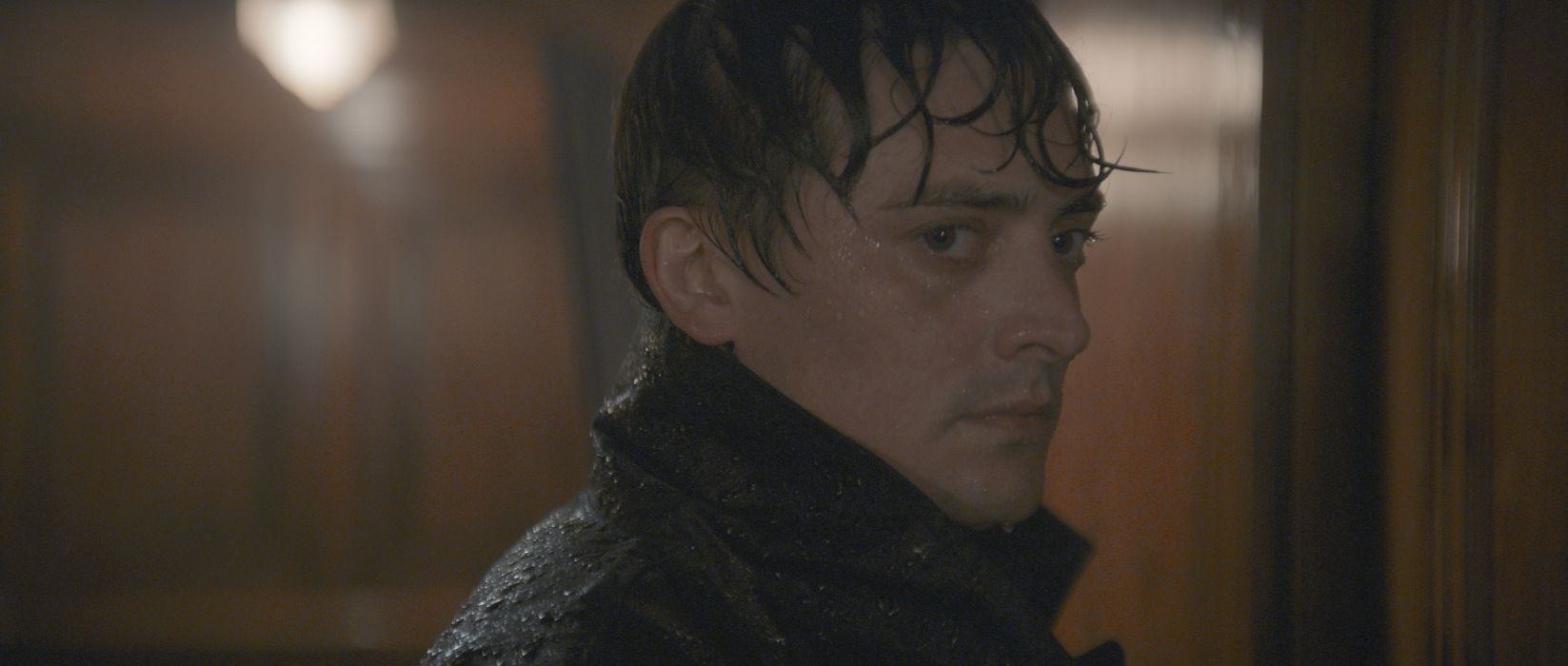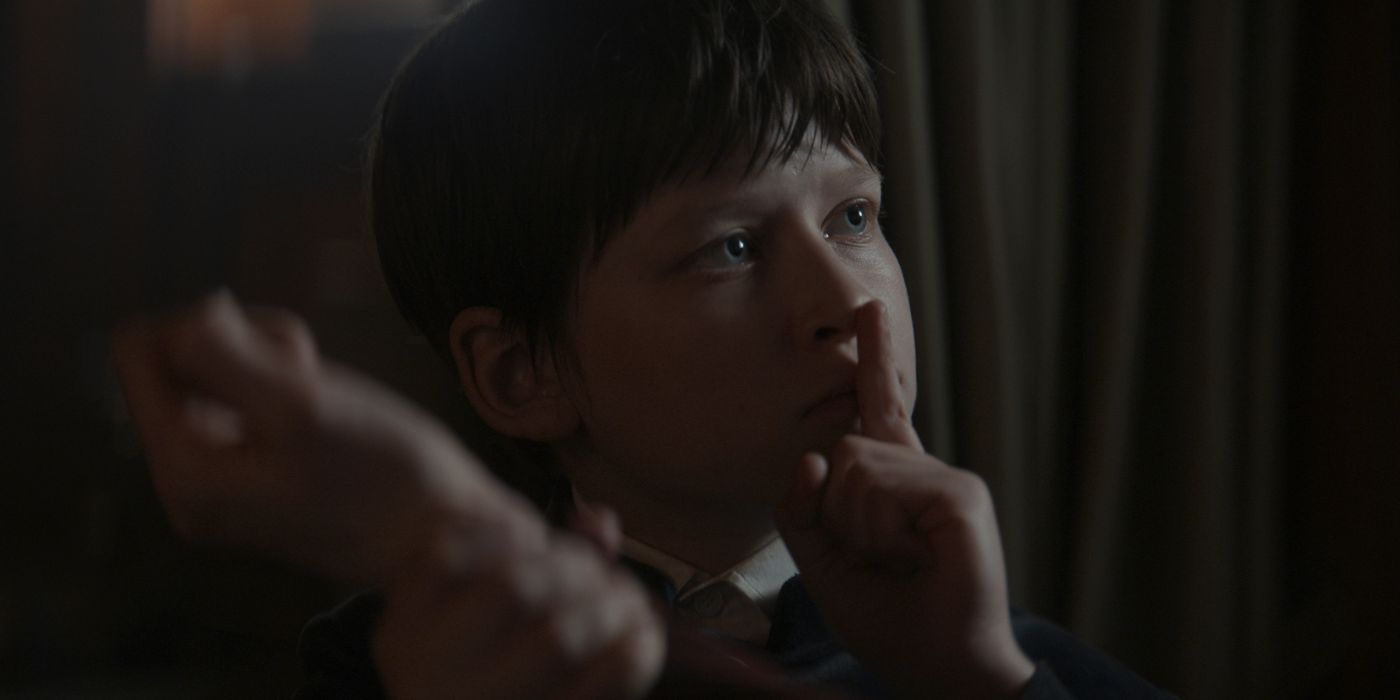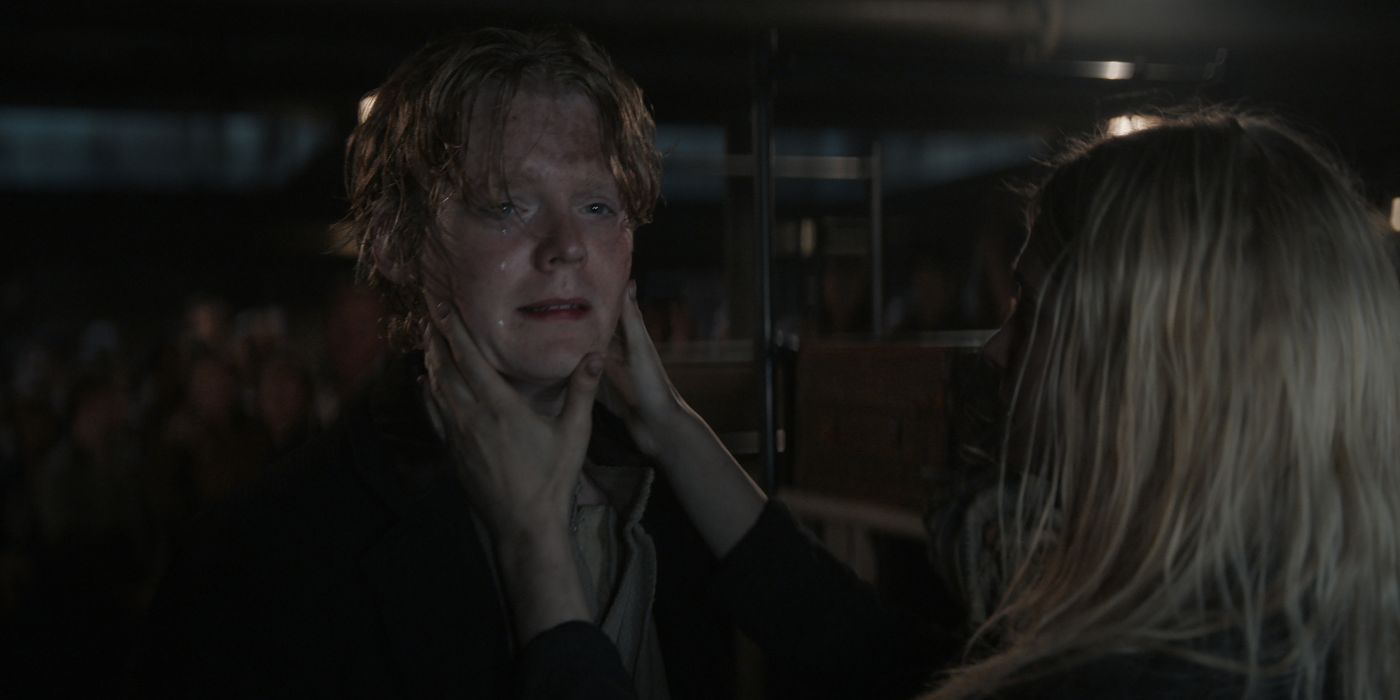Jantje Friese and Baran bo Odar’s latest mindbender 1899 has recently dropped on Netflix, and with it has come a swathe of comparisons to their previous endeavor, Dark. Even putting aside the duo’s involvement, the parallels between the shows are obvious: both feature an ensemble cast who are thrown headfirst into a plot so complex you’ll feel like you need a page of notes to keep track of everything, all told under a thick layer of moody synths and gloomy visuals. As a foundation to become social media's most discussed show for that week, it works pretty well, and for the most part 1899 succeeds in all the ways Dark did. Friese and bo Odar certainly know how to craft a compelling mystery, and once 1899 starts unleashing its greatest tricks, it becomes very difficult to tear yourself away. Combine this with strong performances and more than a few “wtf” moments, and you have an experience for which binge-watching was invented.
But for all its strengths, 1899 never outdoes its predecessor. That might be an unfair statement given that Dark tells a complete story across 26 episodes whereas 1899 is only a third of the way through its intended three-season run, but from what we’ve seen, Friese and bo Odar are running foul of mistakes they previously evaded. The biggest of these is pacing. Dark was a tremendously structured show, managing to transition from a simple crime drama about a missing child to a sci-fi epic set across six time periods in two parallel universes in such a way that you barely even realize it had happened. Friese’s intelligent writing jelled perfectly with bo Odar’s restrained direction, allowing the show’s labyrinthine narrative to remain always comprehensible. From an outside perspective it may appear overwhelming, but in execution it’s pretty smooth sailing.
The Pacing Is the Problem
It’s ironic that the show set on a steamship takes the opposite approach, resulting in an experience that is simultaneously too fast and too slow for its own good. Friese and bo Odar’s obsession with outdoing the mystery box insanity of Dark sees them barreling their way through set pieces at the speed of a bullet train, barely allowing the dust to settle from one twist before pulling the rug out with another. At the same time, they’re also happy to spend large chunks of the runtime on scenes that either draw plot points to their breaking point or simply repeat information we already know. Worst of all, they make the error of playing their best card too early, a move that effectively gives the game away before it has even finished putting its pieces on the board. It’s rare for a show to have such bizarre pacing as this, but thankfully Friese and bo Odar’s previous venture shows exactly how they can fix the one thing holding 1899 back from greatness.
Returning to Dark five years on, it’s easy to forget how comparatively simple the first season was. Before it morphed into a centuries-spanning plot about the fate of the whole planet, Dark was about nothing more than a young boy who goes missing from his home of Winden. We soon learn that he has been transported to 1986 via a sinister cave network located beneath the town’s nuclear power plant — a network that also allows travel to 1953. As knowledge of this becomes more widespread, characters attempt to weaponize this amazing discovery to their advantage, but it quickly becomes apparent that such things are not to be messed with. What follows is a multigenerational plot that explores the devastating consequences of time travel on this tight-knit community, revealing and then dismantling a tangled web of secrets that will leave you unable to look at the town or its residents in the same way once all their secrets have come to light.
But despite the expansive scope, things never get overpowering, due to Friese and bo Odar’s clear understanding of pacing. Such things are always important, but for something like Dark that could easily resemble homework rather than entertainment, it’s vital to structure things correctly, so audiences aren’t having to keep the show’s Wikipedia page forever at hand. Luckily, Friese and bo Odar succeeded with flying colors. Even though this is a story about time travel, they wait until Episode 3 before moving away from the present, giving the audience time to ground themselves in this world before they start easing off the brakes. Similarly, it takes until the fifth episode before we’re cutting between two timelines simultaneously, and all the way until the ninth before all three periods are occupying space in the same episode. It’s a brave decision to keep the show’s unique selling point on hold for most of the season’s runtime, but hindsight has proven it was definitely for the best. That doesn’t mean Dark is free from all confusion, but for a show that’s balancing so many characters and plotlines over its 66-year timeline, Friese and bo Odar do a remarkable job keeping things accessible.
Plot Twist After Plot Twist
It's here where 1899 lets itself down. It’s clear the duo have a boatload (no pun intended) of ideas for how to beat the jaw-dropping reaction Dark frequently provoked, but their blind pursuit of this goal quickly becomes exhausting. Plotlines zip past the screen like there’s no tomorrow, each fighting for the limelight in a move that frequently kills whatever impact Friese and bo Odar were going for. The third episode ends with the Kerberos (the ship the show takes place on) being teleported to an unknown part of the ocean, but this development is barely even acknowledged in later episodes. This is the episode that also ignites a mutiny between the third-class passengers and the ship’s officers, a plotline that should fundamentally alter the nature of the show but is instead resolved and forgotten about within two episodes. It’s hard to feel any investment when the show can’t go five minutes without throwing another wrench into its increasingly convoluted workings, and without taking the time to build a solid foundation from which to hang these mysteries, it’s hard not to feel as adrift as the Kerberos.
This frantic pacing also works against its characters. The best example of this is the ship’s captain Eyk (Andreas Pietschmann), a man who has clearly lived a miserable life that has left him with as many scars mentally as it has physically. Learning about his past should have been one of the season’s driving plotlines, but instead we’re told almost immediately that his depressed state is due to his family dying in a house fire a short time ago. This revelation comes in the opening moments of Episode 2, a time when most viewers will be too busy contending with the show’s initial batch of questions to be interested in the backstory of someone who has had just minutes of screen time. The same episode features another example of this with the Spanish priest Ramiro (José Pimentão) who is hastily revealed to actually be a Portuguese servant, having boarded the ship under false pretenses, so he can elope with his lover Ángel (Miguel Bernardeau). Both of these are interesting twists whose impact is severely undercut thanks to the rushed storytelling, and these are far from the only examples.
Dragging Out Plotlines While Rushing Through Others
Despite this problem, 1899 is also not above dragging out other plotlines to the point of madness. When the crew of the Kerberos board the abandoned wreck of the Prometheus (a ship that disappeared four months ago while traveling the same route), the only survivor they find is a young boy called Elliot (Fflyn Edwards). However, we only learn his name after several episodes of him remaining stubbornly mute, turning an intriguing development into a plot device that soon grows tiring. Coupled with this is the frustration surrounding Daniel (Aneurin Barnard), a passenger with close ties to Elliot who clearly knows more than he’s letting on. Not that he’s going to let that stop him from being willfully coy for most of the season, seemingly infected with a condition that prevents him from saying anything unless it’s shrouded in enigma. Most scenes with either character are painfully repetitive, a feeling made even worse in retrospect when Daniel’s true identity is finally revealed. Dark occasionally fell victim to dialogue that consisted entirely of riddles, but it was never as excessive as this.
The most perplexing decision Friese and bo Odar make is to give away 1899’s biggest twist before we’ve even left the starting gates. The final moments of Episode 2 sees the camera pulling back to reveal a wall of monitors in a decidedly more futuristic setting than 1899. The details are left unanswered, but the implication is clear — everything that is happening on the Kerberos is actually just a simulation. Why they decided to do this is worthy of academic study since it immediately kills any tension they were trying to achieve, and the fact that it takes a few episodes because we return to this feels like a tacit admission that they pulled back the curtain too quickly. Once this is revealed, it becomes hard to take anything that follows seriously since everyone might be revealed to be just a collection of ones and zeros at any moment, and there’s nothing to suggest that the snippets of backstory we’re getting are even genuine.
A Revelation That Comes Too Soon
Imagine if this revelation had come in the season finale, similar to how Dark waited until the closing moments of Season 1 to reveal the fourth, post-apocalyptic, timeline. That was a twist that had everyone screaming at their TVs because they had to wait another 18 months for the next episode, and the reason why it was so powerful was because of the 10 hours of build-up that preceded it. But 1899 does not adopt this philosophy. A last-minute revelation that we’ve actually been in 2099 this whole time would set the internet on fire if it came anywhere else, but in a show that drops such bombshells at the drop of a hat, it’s hard to feel anything other than relief that this is finally over for a while.
For what it’s worth, there’s still a lot to like about 1899. It has more than enough clever ideas to make any writer jealous, and there’s an undeniable addictive quality to it that will have you smashing the next episode prompt the second it appears, but it’s also a very tiring watch. It’s hard for a show to change course when it’s already set sail, but assuming 1899 does return for a second season, a slower pace that understands how to properly time its greatest twists would see it avoiding the rough seas it's currently crashing its way through.
In its current form, 1899 feels more like an experiment to test an audience's capacity for the mystery box subgenre, building off the polarizing work left by Lost and Westworld. An entertaining experiment, but since Dark managed to utilize the same format while also telling one of the best stories in sci-fi television, it’s hard to shake the feeling that 1899 is anything but a step back. Here’s hoping this is addressed the next time the Kerberos arrives into port.

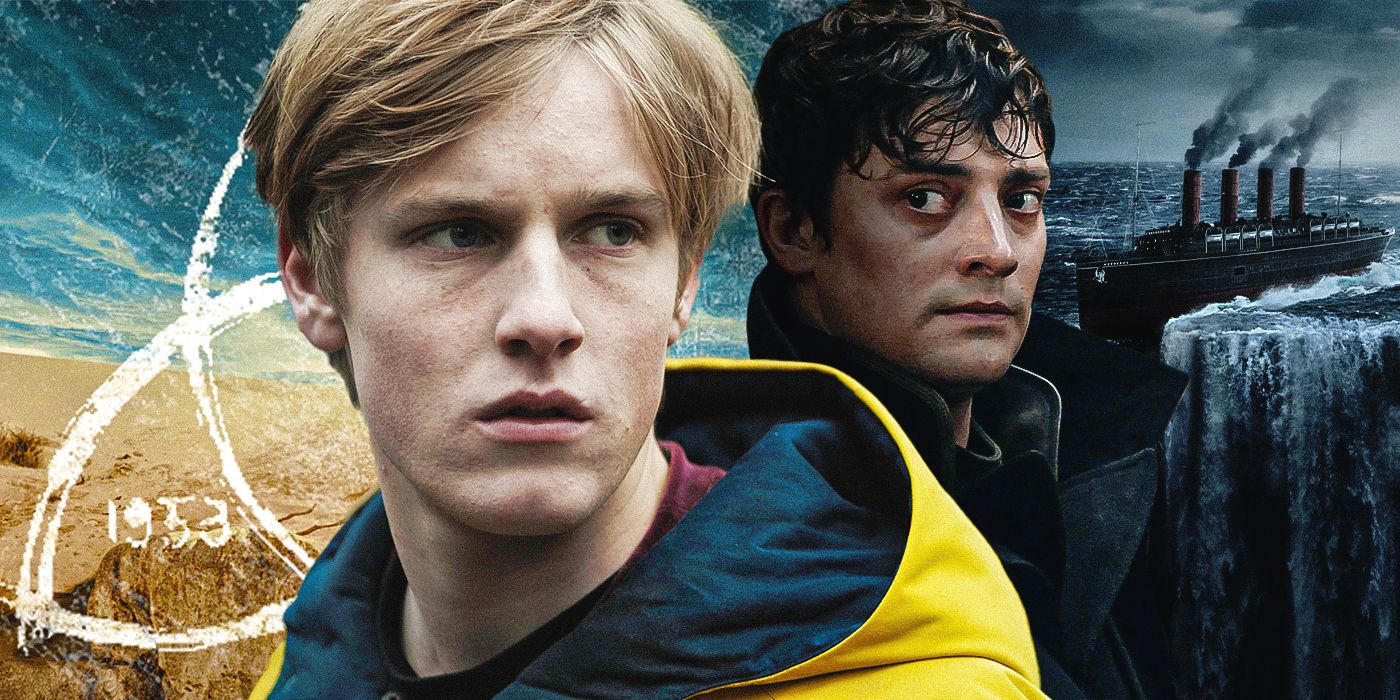
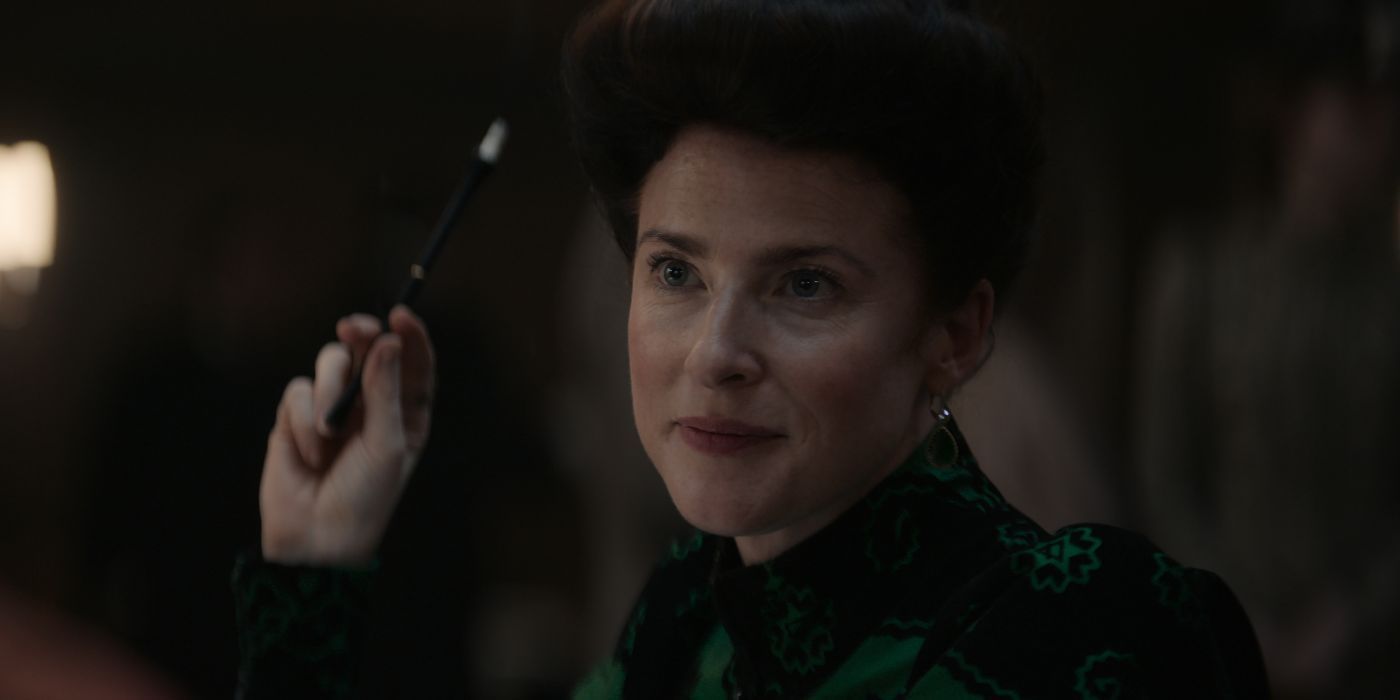
.jpg)
